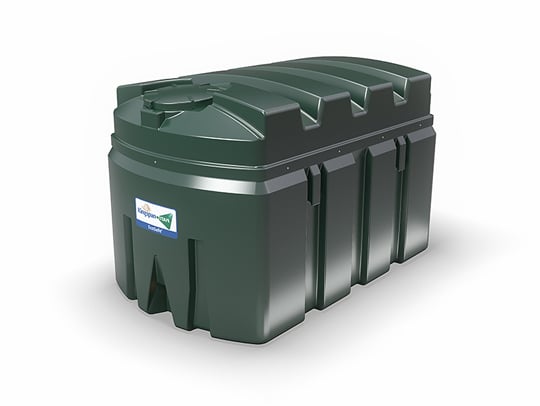News » Is Your Fuel Storage Tank Safe to Use? 2020-11-12
Is Your Fuel Storage Tank safe to Use?
If your home or business relies on a supply of oil, you may already be aware that ensuring your fuel oil storage tank is fit-for-purpose is crucial. The average lifespan of a fuel storage tank is between 10-15 years but it is important to note that some tanks may still have a working life after 15 years with careful maintenance.
How Often Should I Check My Oil Tank for Damage?
Regardless of the age of your tank, we recommend carrying out a check at least once a month to monitor any signs of damage, but especially if your tank is 10 years of age or older.
Damage can occur on your tank for a variety of reasons, such as cold weather or sun exposure. Although older tanks are more susceptible to faults, damage can affect your tank at any age, which is why regular checks are essential.
Our drivers will always give the tank the once over before delivering fuel. Should the driver notice any signs of damage, or have concerns about the condition or placement of your oil tank, they may decide that it would be unsafe to carry out the delivery. If this should happen, the driver will leave a note asking you to make contact with us as soon as possible.
In 2020 due to the lower fuel prices, most tanks were filled on a regular basis and constantly topped up to benefit from the lower rates. In these cases, and particularly in cases where lower volumes of product were previously purchased, the difference in weight could cause problems such as slits from the increased pressure which could result in leakages and loss of fuel.
Plastic oil storage tanks cannot be repaired once they have started to deteriorate, therefore noticing the sign of a fault developing is essential to prevent an accidental spill.
How to Inspect Your Fuel Oil Tank for Damage and Faults:
An inspection of your fuel storage tank should include the base, surrounding area and any associated visible pipework. You should look for any changes to the tank and surrounding area since the last check was carried out, as well as anything which could indicate a leak is likely to happen or has happened.
When inspecting your fuel storage tank it is important to include:
- A check of the surrounding vegetation.
Signs of die-back could indicate that there is a leak coming from the fuel tank. Allowing the surrounding vegetation to become overgrown could also make it more difficult to properly assess the condition of the tank and spot any potential dangers.
- A check of the base and supports of the fuel storage tank for cracking and subsidence.
- A check of all visible pipework, valves and filters.
- Signs of dampness could indicate an oil leak.
Other signs of damage could also be present, such as staining. Pay particular attention to joints connection points.
- A thorough check of the oil storage tank.
Be aware that the location of some tanks could mean that one or more of its sides are obscured from view, for instance if it was located too close to a wall or fence. This can make it more difficult to carry out a thorough inspection of the tank. On a plastic tank, signs of damage could include: whitening, bulging, cracking, splits and deformation.
- A check of tank bunds, if applicable.
Some tanks are situated within a physical bund. If this is the case for your tank, you should also include a check of this secondary containment facility. Be sure to remove any debris & rubbish.
Typical signs of damage on an oil storage tank:
It is common for fuel oil storage tank faults to begin to show on the outside of the tank. Visible signs of damage on the outside of your oil tank warrant speedy investigation and rectification.
- Sun & UV Exposure
Whitening and discoloration is a sign of surface bleaching of your plastic oil storage tank, which is caused by exposure to the UV light from the sun.
Plastic oil storage tanks will experience sun exposure in the summer, which causes the plastic to expand. Sun exposure can lead to deformities being created in the plastic such as bowing and twisting. In severe cases these deformities can progress into cracks, which could allow dangerous oil to spill, and allow water in to cause contamination.
- Uneven Base
An incorrectly fitted base could cause a plastic oil tank to experience unusual pressure, particularly when full. This could lead to stretching of the plastic and eventually to the formation of cracks and splits.
It is important that fuel oil storage tanks are properly and correctly installed using a flat, level, concrete base.
- Damage Caused by Freezing Temperatures
The most common form of damage experienced by plastic oil storage tanks is caused by the cold and often freezing temperatures in winter. The cold weather causes the plastic of the tank to become brittle. Over a long period of time this can cause damage to the tank, most commonly in the form of splits and cracks.
During the winter months we recommend that our customers check the oil level in their tanks every 2 weeks, to reduce the chances of unexpectedly running dry. We would advise completing a tank inspection at the same time, to check that the weather conditions are not adversely affecting the integrity of your oil tank.
What should I do if I spot damage on my oil storage tank?
It is important that any open cracks or splits are covered as soon as they are noticed to prevent water contamination to the fuel inside whilst a replacement tank is organised.
As a quick, but temporary fix, a bar of soap can be used to plug smaller cracks and splits. The soap will prevent water from entering the tank, and reduce the chances of oil spilling out.
For more information on replacement tanks, or for guidance on maintaining your fuel oil storage tank, contact our Sales Department on 053 94 21789 to arrange a Kingspan oil tank or visit glenfuelsstore.ie.




